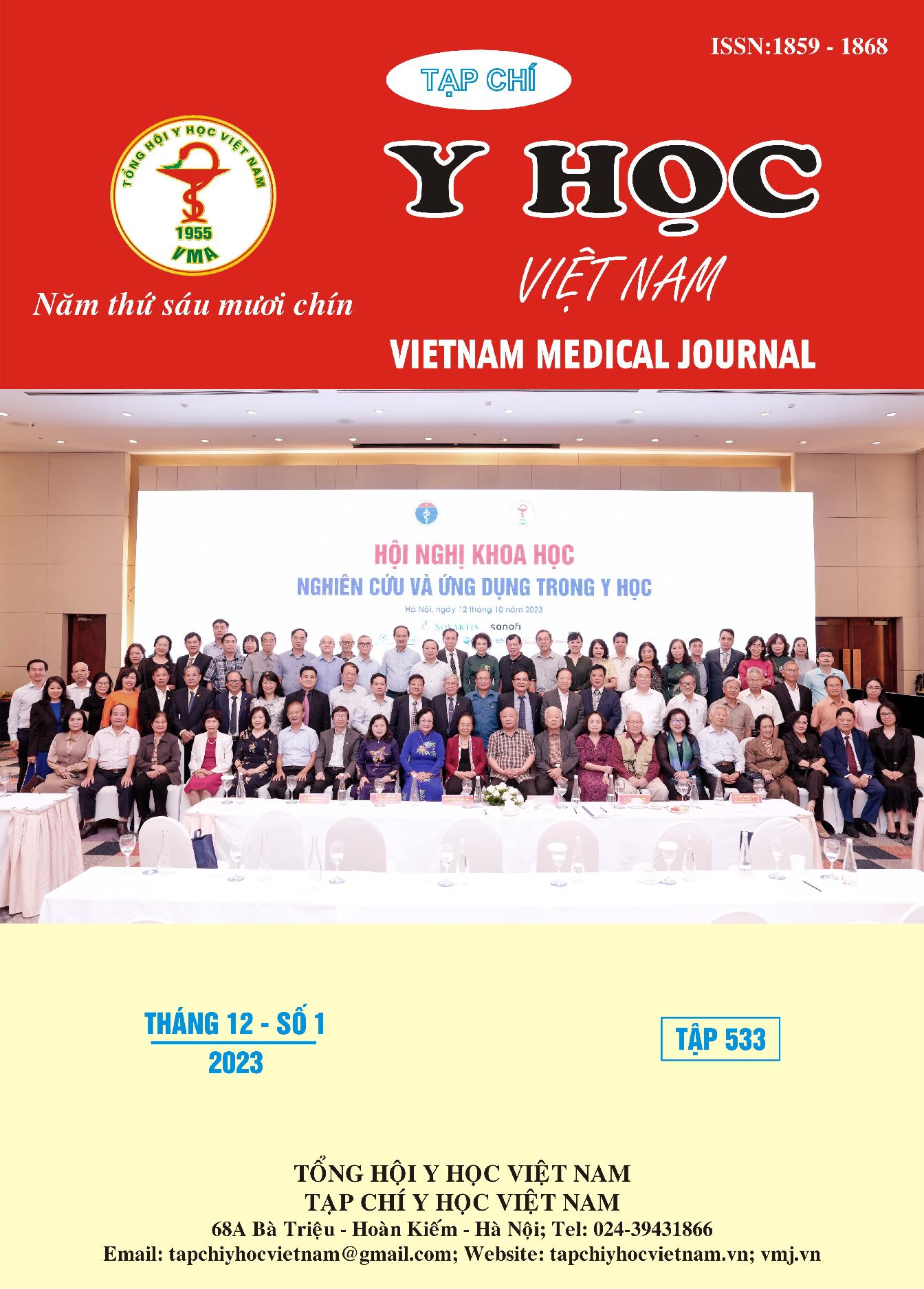QUALITY OF LIFE OF RECTAL CANCER PATIENTS AFTER SURGERY: COMPARISON BETWEEN PATIENTS UNDERGOING LAPAROSCOPIC SURGERY AND ROBOTIC SURGERY
Main Article Content
Abstract
Objective: Rectal cancer is a common disorder in Vietnam. Laparoscopic surgery and robotic surgery for ministering rectal cancer are increasingly popular. Patients who have rectal cancer surgery with end-to-end anastomosis are included in the study to assess their quality of life. Subjects and methods: We studied 86 patients in two groups of laparoscopic and robotic surgery, treating rectal cancer with end-to-end anastomosis. Patients were assessed for quality of life according to the SF-36 table 6 and 12 weeks after surgery. Results: The average age of the laparoscopic and robotic surgery groups was 62.2 and 60.6, respectively. Most patients are in stages II and III; there are no patients in stage IV and few in stage I. In robotic group, general health and social functionality improved significantly after 6 weeks and 12 weeks compared laparoscopic group. Conclusions: In the robotic surgery group, most areas of SF-36 had better improvement than the group of laparoscopic surgery patients 6 and 12 weeks after surgery
Article Details
Keywords
Rectal cancer; SF-36; Quality of life; Robotic surgery.
References
2. Trần Kim Trang (2012). “Các thang điểm đánh giá chất lượng cuộc sống bệnh nhân tim mạch”. Y học Thành Phố Hồ Chí Minh, 16 (1), pp. 9-15.
3. Glimelius B, Tiret E, Cercantes A, Arnold D (2013). Rectal cancer: ESMO Clinical Practice Guidelines for diagnosis, treatment and follow up. Annals of Oncology, 24 (suppl_6):vi81-vi8.
4. Phạm Hồng Nam và cộng sự (2023). Các yếu tố liên quan đến chất lượng cuộc sống của người bệnh ung thư đại trực tràng. Tạp Chí Y học Việt Nam, 526(1A).
5. Nguyễn Thành Trung, Nguyễn Văn Xứng, Đoàn Hiếu Trung (2018). Nghiên cứu đặc điểm lâm sàng, nội soi và mô bệnh học của ung thư đại trực tràng tại bệnh viện Đà Nẵng trong 02 năm (2016-2017). Tạp chí Y Dược học Huể.8(8): p.tr 7-12.
6. Bosma E, Pullens MJ, de Vries J, Roukema JA (2016). Health status, anxiety, and depressive symptoms following complicated and uncomplicated colorectal surgeries. Int J Colorectal Dis.;31(2):273-282.
7. Yuge K, Miwa K, Fujita F, Murotani K, Shigaki T, Yoshida N, Yoshida T, Koushi K, Fujiyoshi K, Nagasu S and Akagi Y (2023) Comparison of long-term quality of life based on surgical procedure in patients with rectal cancer. Front. Oncol. 13:1197131.
8. Laforest A, Bretagnol F, Mouazan AS, Maggiori L, Ferron M, Panis Y (2012). Functional disorders after rectal cancer resection: does a rehabilitation programme improve anal continence and quality of life? Colorectal Dis.14(10):1231-1237.
9. Quezada-Diaz FF, Smith JJ (2021). Options for Low Rectal Cancer: Robotic Total Mesorectal Excision. Clin Colon Rectal Surg.34(5):311-316.
10. Lizdenis P, Birutis J, Čelkienė I, et al. (2015). Short-term results of quality of life for curatively treated colorectal cancer patients in Lithuania. Medicina (Kaunas). 51(1):32-37.


